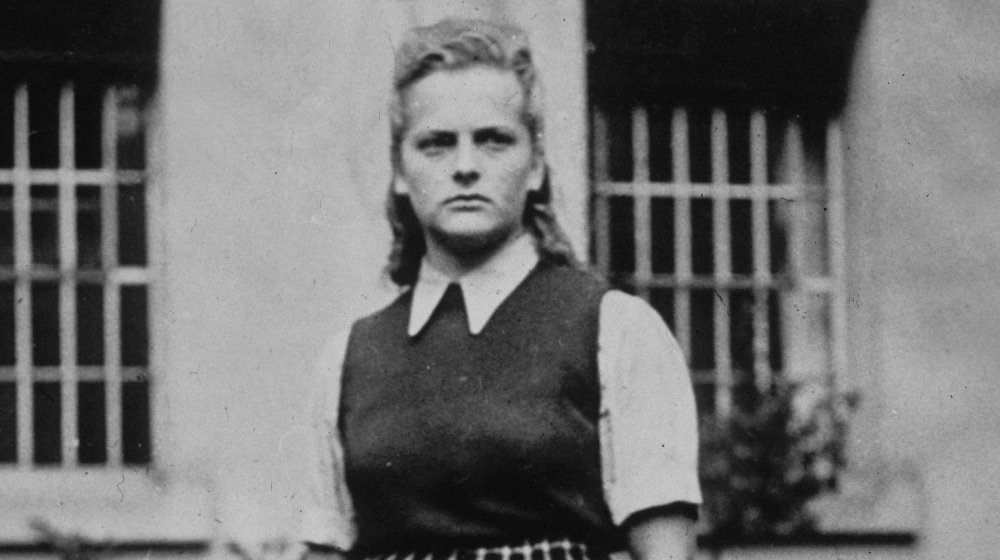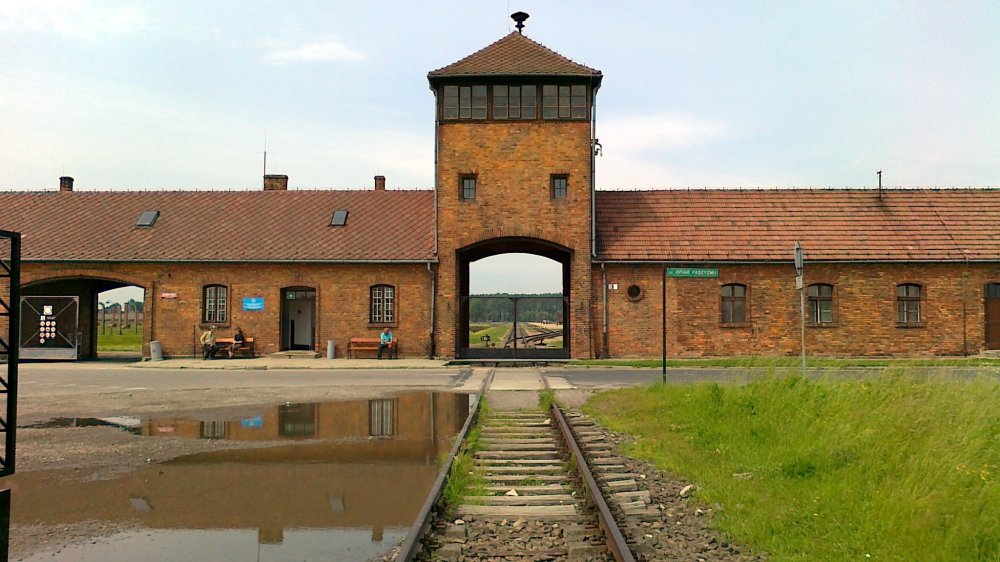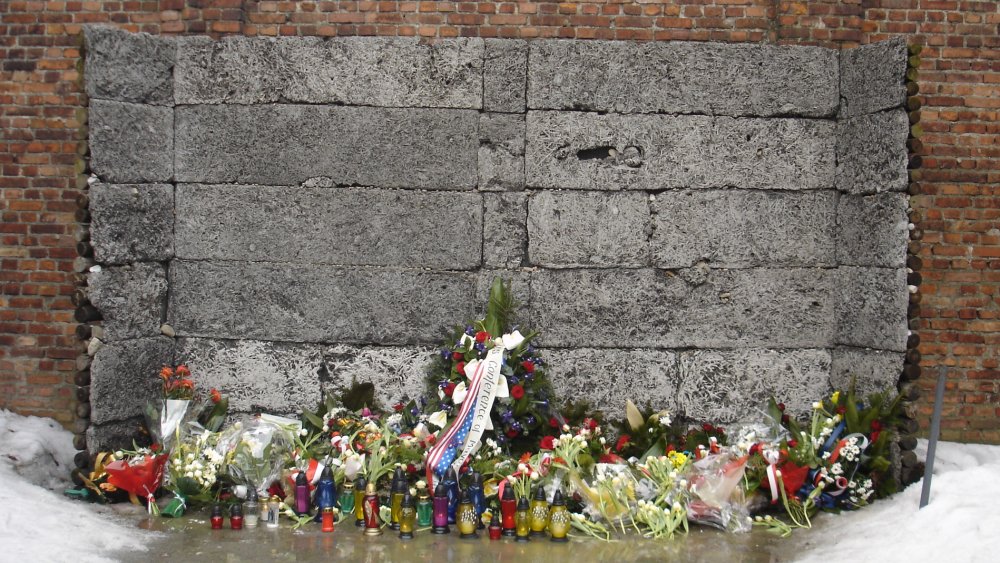Irma Grese: The Truth About The 'Hyena Of Auschwitz'
To say that Auschwitz is one of history's most notorious sites of mass murder and suffering is to greatly understate the severity of its absolute inhumanity. Nazi Germany had many detention centers across its land, and Auschwitz was but one of them. In fact, as described by PBS, Auschwitz was comprised of numerous camps — 45, in fact — along the banks of the Sola River in Poland. The main camp, Auschwitz-Birkenau, was the hub of a network of imprisonment, forced labor, and execution. And in the center of Auschwitz-Birkenau were the gas chambers, where the elderly, children, weak, or those otherwise deemed unfit to work were executed upon arrival. As survivor Darrio Gabbai states, "I see them all standing up, some black and blue from the gas, no place where to go, dead."
Even among all the SS officers responsible for carrying out the torture and murder of Jewish prisoners in Auschwitz — including commander Josef Kramer, the "Beast of Belsen," per the Daily Mail – one woman was considered the most monstrous and sadistic of them all: Irma Grese, the "Hyena of Auschwitz." Sharp, loyal, savage, and obedient, Grese quickly rose in rank out of 170 female SS staff to become the warden of the women's camp, which had 30,000 women in 62 barracks. The barracks were the epitome of squalor and disease, and Grese compounded this suffering many times over.
The rise to power of a monster
As stated on All That's Interesting, Irma Grese was born in fall 1923 in a rural German village. Irma was one of five children. Her mother committed suicide when Irma's father had an affair; Irma was a teenager at the time. Irma was mercilessly bullied in school and so dropped out to work on a farm. After being approached by the SS at age 19 with what was basically a job offer, Grese took her first position at the women-only Ravensbruck concentration camp, working as a nurse.
Survivor Anita Lasker-Wallfisch, who spoke with Grese more than once at Auschwitz, said that Grese was "given a uniform and black boots, a dog a, gun, better pay — fantastic." Anita went on to comment on the role that the Nazis had in shaping people's lives, saying, "'You know someone like Irma Grese, how did she get into this position? ... Look at the psychology of these people who worked in the concentration camps." In fact, before becoming employed by the SS, Grese had never even met a Jewish person.
A year later, in 1943, Grese was transferred to Auschwitz. In March of that year, the gas chambers and crematoria opened. Auschwitz proved the perfect breeding ground for Grese's savagery, and in less than a year, she gained the rank of senior SS supervisor, the second highest position available to women in the SS. The cost of her rise to power was bodies and blood.
Atrocities, war crimes, and the end
Grese's atrocities are horrifying and nearly unspeakable. She would strike women on their breasts, and had Jewish girls act as lookouts while she raped prisoners. She would beat people on a whim, particularly with her hobnailed jackboots, and whip them, and send the prettiest to the gas chambers whenever she wanted. She would walk up to starving prisoners, eating an apple, and drop the core into the lap of an attack dog and leave, hoping that prisoners would try and retrieve the core and be mauled to death. She walked around shooting people whenever she pleased, and survivor Vera Alexander recounts her saying, "One down, it doesn't matter" the morning after pieces of a fellow prisoner's brain landed on her shoulder. When Grese wasn't tormenting prisoners, she was sleeping with SS guards, and gaining a reputation for promiscuity.
In late 1944, per History, the war was coming to a close and the Soviets were advancing on Auschwitz via Krakow. The Germans ordered Auschwitz abandoned, and so began the infamous death marches of 60,000 prisoners as the Nazis tried to clear out their death camps. Before the end, Anita Lasker-Wallfisch recalls something approaching contrition entering Grese, who approached her, saying, "Now, we'll soon be home".
Home, it seemed, was nothing less than the grave. Irma Grese was convicted as a war criminal at the Luneberg trials and hanged. She was the youngest woman in history to be executed under British law. She was 22.


